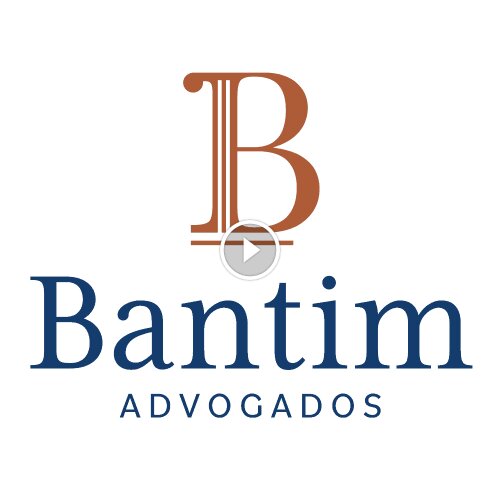Best Financial Services Regulation Lawyers in Sao Paulo
Share your needs with us, get contacted by law firms.
Free. Takes 2 min.
List of the best lawyers in Sao Paulo, Brazil
About Financial Services Regulation Law in Sao Paulo, Brazil
Financial Services Regulation in Sao Paulo, Brazil, refers to the legal framework and oversight mechanisms designed to ensure the safety, transparency, and efficiency of financial markets and institutions operating within the state. Sao Paulo, as Brazil’s commercial powerhouse, hosts the headquarters of major banks, investment firms, fintech companies, and the Sao Paulo Stock Exchange (B3). The regulations cover a broad spectrum of activities including banking, securities, insurance, asset management, payment systems, and fintech operations. These rules are mainly governed by federal legislation, but many regulatory actions, compliance requirements, and enforcement proceedings take place in Sao Paulo given its pivotal role in the national economy.
Why You May Need a Lawyer
Given the complexity of Financial Services Regulation, seeking legal advice in Sao Paulo can be crucial in several situations:
- Establishing a bank, investment fund, or financial company.
- Launching fintech products, such as payment services or digital lending platforms.
- Ensuring ongoing regulatory compliance for existing financial service providers.
- Receiving fines or sanctions from regulatory authorities.
- Engaging in mergers, acquisitions, or restructuring involving regulated entities.
- Preparing for regulatory inspections or dealing with enforcement actions.
- Handling disputes, litigation, or arbitration related to financial service agreements.
- Structuring new financial instruments or securitization deals.
- Providing cross-border financial services involving Brazilian clients or partners.
- Protecting consumer rights or contesting misleading or abusive financial practices.
A lawyer specializing in Financial Services Regulation can help interpret the law, represent your interests before regulators, draft compliant contracts, and guide you through complex transactions and regulatory changes.
Local Laws Overview
Brazilian financial services are mainly regulated at the federal level, but Sao Paulo’s prominence means that local enforcement and judicial decisions can set important precedents. Key laws and regulators include:
- Central Bank of Brazil (Banco Central do Brasil - BACEN): Oversees banks, payment institutions, and foreign exchange operations in accordance with the National Financial System (Sistema Financeiro Nacional).
- Securities and Exchange Commission (Comissão de Valores Mobiliários - CVM): Regulates the securities market including the B3 stock exchange, investment funds, and public offerings.
- Private Insurance Superintendence (Superintendência de Seguros Privados - SUSEP): Regulates insurance, pensions, and reinsurance industries.
- National Monetary Council (Conselho Monetário Nacional - CMN): Issues key policies affecting all financial services.
- Data Protection (Lei Geral de Proteção de Dados - LGPD): Applies to the handling of client and transactional data in the financial sector.
- Consumer Protection Code: Safeguards consumers of financial products and services.
- Sao Paulo State and Municipality Laws: Can add local consumer protection or investor safeguard mechanisms, especially in civil court matters.
Compliance in Sao Paulo also means being attentive to local interpretations and practices as enforced by courts and administrative agencies, particularly in areas like digital banking, investment disputes, and fintech innovation.
Frequently Asked Questions
What entities regulate financial services in Sao Paulo, Brazil?
The primary regulators are BACEN, CVM, and SUSEP, all operating on a national level. Their regional offices and enforcement actions are active in Sao Paulo due to its economic significance.
Do I need authorization to offer financial services in Sao Paulo?
Yes. Most financial activities, including banking, brokerage, payment services, and insurance require formal authorization or registration with the applicable regulatory body before starting operations.
What are the key compliance challenges for fintech companies?
Fintechs must comply with anti-money laundering rules, data protection under LGPD, capital requirements, and often face regulatory uncertainty as technology evolves more quickly than legislation.
How are consumer rights protected in financial services?
The Consumer Protection Code applies, ensuring transparency, fair contracts, and dispute resolution mechanisms. Violations may be addressed in local courts or via administrative agencies.
What are common penalties for regulatory violations?
Penalties can include fines, suspension of activities, loss of license, and in severe cases, criminal charges for fraud or money laundering.
Can foreign companies offer financial services in Sao Paulo?
Foreign companies can operate but must establish a local presence and obtain the same regulatory approvals as domestic firms. Foreign capital restrictions may apply to certain financial segments.
Is cross-border data transfer allowed for financial institutions?
Yes, but transfers must meet the requirements of the LGPD, including proper safeguards and, in some cases, regulatory notification or approval.
Are digital and crypto-assets regulated?
Digital banking and payment services are regulated, and recent laws have introduced frameworks for crypto-assets, typically under BACEN and CVM oversight. However, regulations are rapidly evolving.
What should I do if I receive a regulatory notice or fine?
Consult a lawyer promptly to assess the grounds of the notice, prepare a defense, negotiate settlements, or appeal decisions where appropriate.
How can I resolve disputes with financial institutions?
Disputes can be resolved through internal ombudsman services, consumer protection bodies (like Procon), mediation, or litigation before civil courts in Sao Paulo.
Additional Resources
Several governmental and independent organizations can assist individuals and companies with questions or disputes related to Financial Services Regulation in Sao Paulo:
- Central Bank of Brazil (BACEN) - local office for regulatory questions and complaints.
- Securities and Exchange Commission (CVM) - for issues related to securities and investments.
- Superintendence of Private Insurance (SUSEP) - for insurance and pension matters.
- Consumer Protection and Defense Program (Procon-SP) - handles consumer complaints related to financial products and services.
- Brazilian Association of Financial Law (ABDF) - educational resources and events.
- Law schools and bar association legal aid initiatives in Sao Paulo.
Next Steps
If you believe you need legal assistance in Financial Services Regulation in Sao Paulo, consider the following steps:
- Identify the specific issue or regulatory area in which you need advice, such as licensing, compliance, enforcement, or dispute resolution.
- Gather all documents, correspondence, and notices received from institutions or regulators.
- Consult a specialist financial services regulatory lawyer or law firm with experience in the Sao Paulo market.
- Prepare relevant questions and desired outcomes to discuss during your consultation.
- Stay informed about ongoing regulatory changes by subscribing to updates from regulators and trade associations.
A qualified legal professional can clarify your rights, outline the best course of action, and represent you in interactions with regulators or courts. Advance preparation and timely legal advice are keys to successfully navigating the complex world of Financial Services Regulation in Sao Paulo, Brazil.
Lawzana helps you find the best lawyers and law firms in Sao Paulo through a curated and pre-screened list of qualified legal professionals. Our platform offers rankings and detailed profiles of attorneys and law firms, allowing you to compare based on practice areas, including Financial Services Regulation, experience, and client feedback.
Each profile includes a description of the firm's areas of practice, client reviews, team members and partners, year of establishment, spoken languages, office locations, contact information, social media presence, and any published articles or resources. Most firms on our platform speak English and are experienced in both local and international legal matters.
Get a quote from top-rated law firms in Sao Paulo, Brazil — quickly, securely, and without unnecessary hassle.
Disclaimer:
The information provided on this page is for general informational purposes only and does not constitute legal advice. While we strive to ensure the accuracy and relevance of the content, legal information may change over time, and interpretations of the law can vary. You should always consult with a qualified legal professional for advice specific to your situation.
We disclaim all liability for actions taken or not taken based on the content of this page. If you believe any information is incorrect or outdated, please contact us, and we will review and update it where appropriate.










